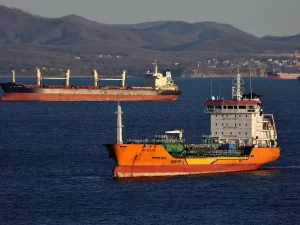As the most recent retaliation for Russia’s invasion of Ukraine, the European Union, the G-7, and its allies will attempt to cap the price of Russia’s petroleum exports starting on February 5.
The EU will also forbid practically all imports of Russian oil products at the same time.
Similar restrictions are already in place for the nation’s crude shipments, but some observers of the oil market are worried about the possibility of price increases due to the cap and ban on refined fuels, particularly diesel.

This unprecedented portion of the global diesel market, the world’s workhorse fuel, is just weeks away from being subjected to harsh sanctions.
Russia was Europe’s major external supplier of the fuel prior to its invasion of Ukraine, and the continent continued to buy in substantial quantities right up until the shutdown.
As a result of the sanctions, global diesel flows are anticipated to be rerouted significantly, boosted by Russia’s new crude customers shipping fuel back to Europe.
However, there is a possibility of increased pricing in the short run.
The European Union will have to replace around 600,000 barrels of diesel imports each day, and Russia will have to find new consumers, stockpile the fuel on ships, or reduce production at its refineries.
Shipments into the EU from the United States and India have already increased as these countries produce more than they consume, allowing them to export their surplus.
China is also expected to send more of the fuel into its nearby markets, indirectly pushing cargoes from other suppliers toward Europe.
Crude prices slid after sanctions on Russia appeared to reroute exports, rather than cut them.














